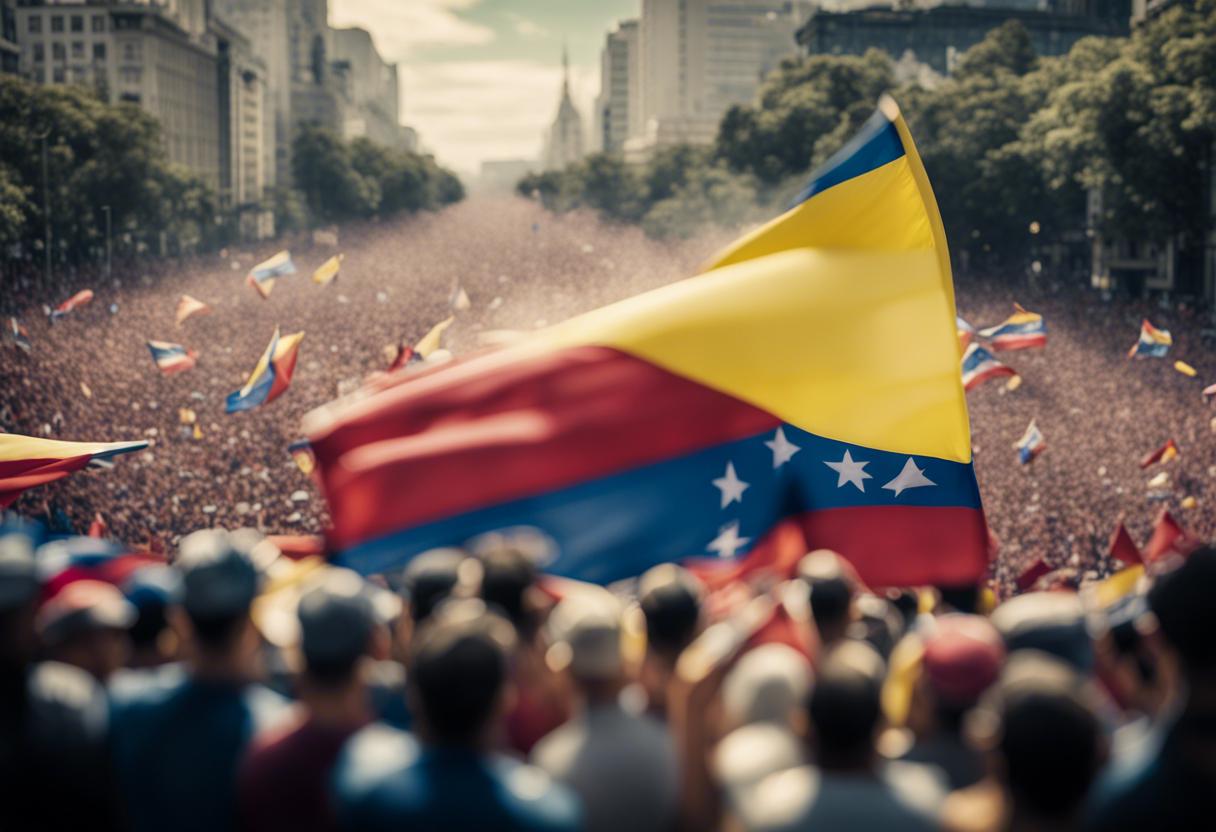In a fully operation democracy, it’s difficult to conceive of a sitting leader with a track record like Nicolás Maduro’s emerging victorious in an election. Maduro, who assumed Venezuela’s presidency in 2013, has presided over the worst economic downfall in the history of the Americas during a time of peace, resulting in the largest refugee crisis that the region has experienced, with 25% (or 7.7 million) of the Venezuelan population seeking sanctuary abroad.
The Maduro government has also been linked to numerous human rights abuses; with those remaining in Venezuela subjected to terrifying poverty and state terror acts. Maduro has even been accused by the United Nations of crimes against humanity, as it’s believed that death squads under his command have performed thousands of illegal killings to intimidate and suppress opposition.
Given these circumstances, it’s unsurprising that polls suggest Edmundo González, the candidate from the opposition, is on course for a defining win in the coming presidential elections while popular opinion against Maduro is high. Yet, doubts persist that Maduro will permit an opposition win or consent to one should González be declared the victor by the electoral court, which is still within Maduro’s influence, as Venezuela has devolved into an authoritarian regime from a functioning democracy under the socialist Bolivarian Revolution initiated by Hugo Chávez, Maduro’s predecessor, 25 years ago.
The opposition’s overwhelming 2015 win in what was a comparatively unencumbered (though skewed) national assembly election – the last public opinion gauge deemed trustworthy – was swiftly disempowered by Maduro. Since then, he has avoided legitimate elections in favour of fraudulent ones, like his widely criticised victory in the 2018 presidential elections, and he continually resists both local and international attempts to oust him from his position.
In a bid to mitigate the financial crisis last October, Maduro entered into the so-called Barbados Agreement with the opposition. He promised to hold a “transparent and fair” presidential election in exchange for the minimal removal of the sanctions imposed by the US in response to his regime’s increasing authoritarianism. Although the sanction relaxation did give some economic respite, as in previous instances, Maduro attempted to retain the benefits he had gained while reneging on the promises he had made to secure them.
Maduro banned the charismatic right-wing opposition leader María Corina Machado from running against him and took the same action against her initial successor, forcing the opposition to resort to their third option, González. This manipulation, one of many attempts to skew the balance in favour of the regime, led the Biden administration to reintroduce the majority of the sanctions just half a year later. However, the elections are still scheduled for Sunday, and despite the popular Machado being replaced with a lesser-known diplomat, public support for the opposition remains high.
As Maduro faces his first significant challenge in years, doubts surround the legitimacy of the upcoming vote. The regime has rejected international offers for election observation, including from leftist politicians in the region, creating concerns about potential fraud, much like before. With regard to Maduro accepting a possible defeat, he forewarns that if González triumphs, Venezuela could descend “into a bloody, fraternal civil war”. There are also apprehensions that he may provoke a regional crisis as a strategy to retain power by escalating the border conflict with Guyana over the oil-rich Essequibo region.
Maduro and his companions have numerous motivations for their tenacious grip on power. Apart from the potential legal prosecutions over violation of human rights, another concern that arises is accountability for the grand pillage of state finances through the past quarter century that chavismo has dominated. The complicity of high-ranking military individuals in widespread offences, which includes narcotics trafficking by the Suns Cartel – a group of military personnel, ensures Maduro of military backing should he resolve to confront calls for his departure. Despite forceful pressure expected from entities like the US and the EU, Caracas is assured of backing from principal regime partners including Cuba, Iran and Russia, in its decision to firmly resist.
A more favourable view expressed by some in Caracas suggests an acceptance of defeat by the chavismo, whilst maximising their reigning power over government institutions to intimidate the opposition during the protracted transition until the victor of Sunday’s election is formally inaugurated on January 10th. The purpose would be to secure assurances that the inner circle of the regime will not be targeted for their deeds during their tenure. Such compromises might be objectionable to many in the opposition. However, after a damaging 25 years, this could possibly be the best opportunity for the nation’s people to force Maduro out of the presidency and initiate the extensive task of reconstructing their shattered country. Foremost, they must endure an election day inundated with an unusual degree of uncertainty, despite what the polls may suggest.

